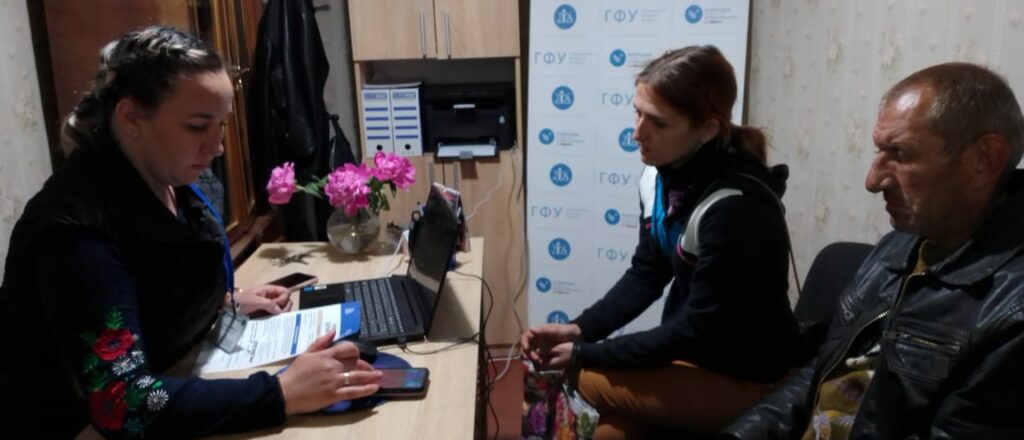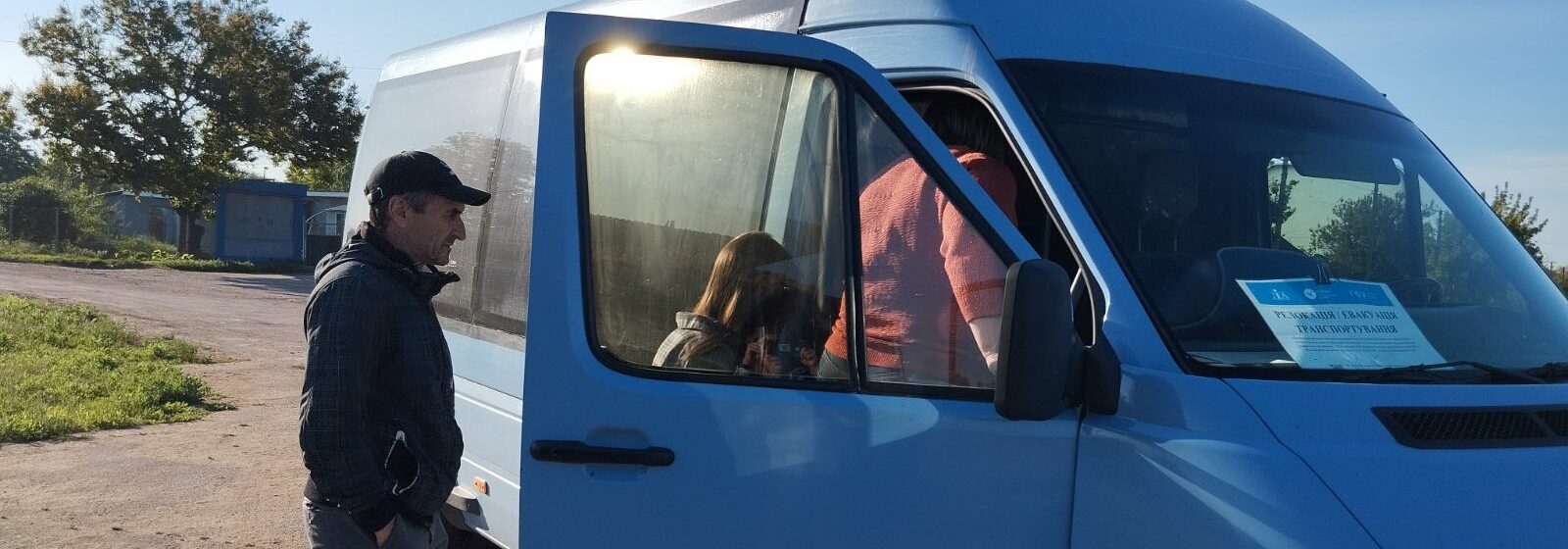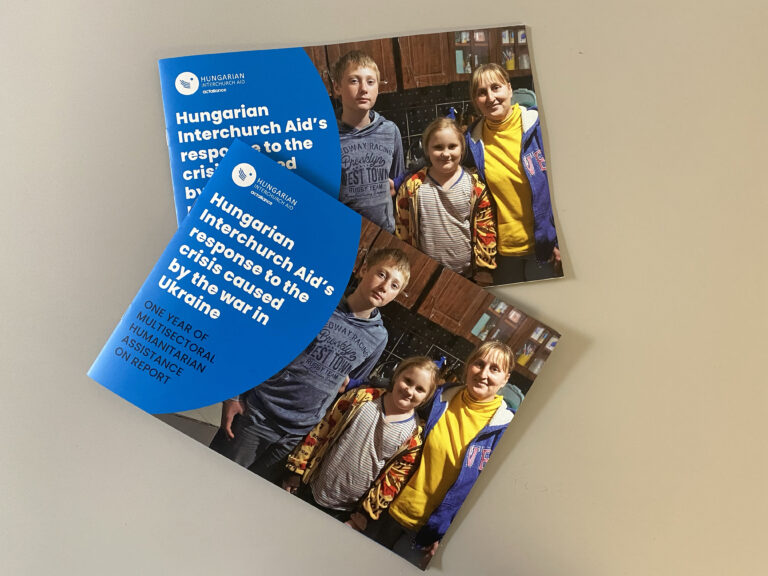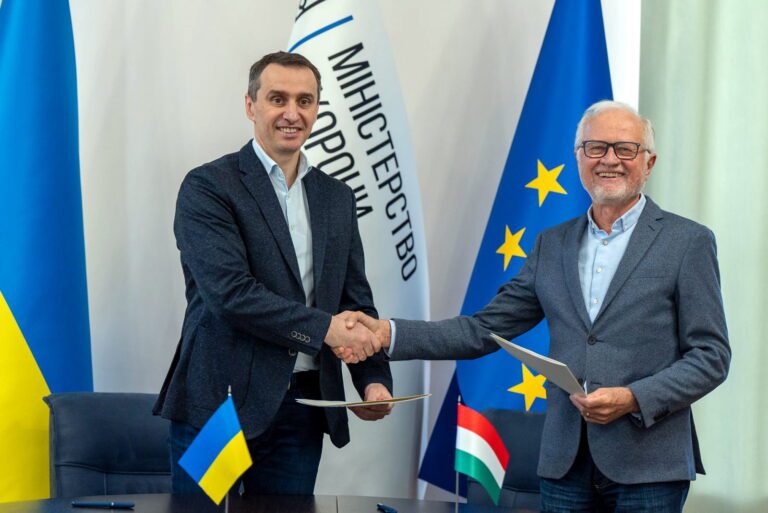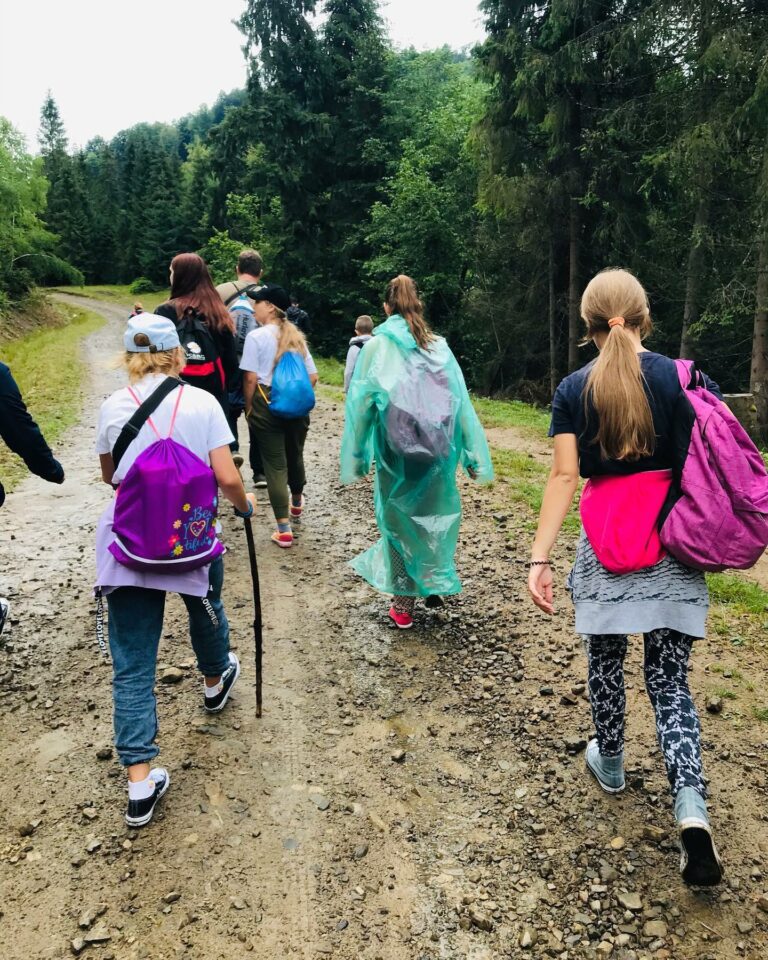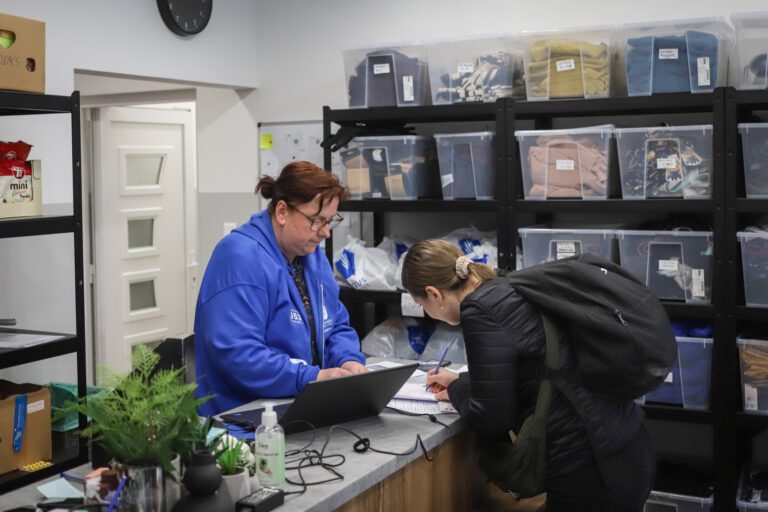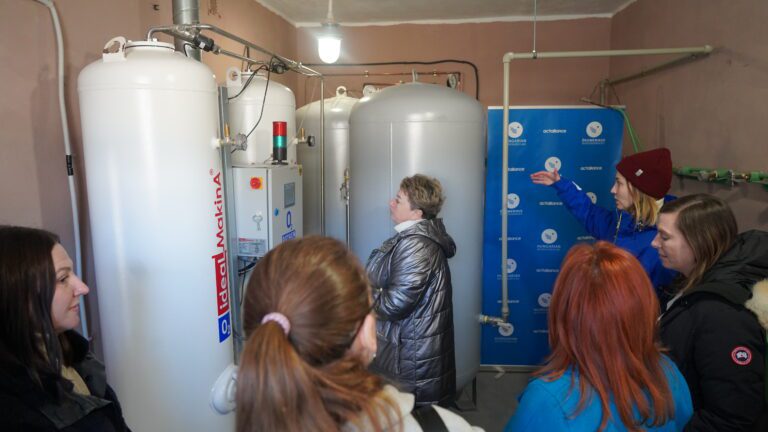Not forgotten: indispensable help for frontline residents
Residents of Donetsk, Kherson and Zaporizhzhia oblasts were among the first to witness the horrors of war: destruction, deprivation, even partial or full occupation. Tens of thousands have fled their homes, but many of them have stay behind under daily shelling and in constant fear for their lives and livelihoods. Nevertheless, they are not forgotten. Hungarian Interchurch Aid (HIA) – with the financial support of the Ukraine Humanitarian Fund (UHF) and its partners – has established 20 support points in the territories close to the frontline, to help these brave people cope with their daily challenges.
Every morning, Yana opens up the little office in the frontline town of Orikhiv. She has to be present: located only a couple of kilometres from the actual combat zone, mobile communication is impossible, and internet availability is not a given either. Those who come to her for help face various problems -most of which she is able to solve even in the dangerous environment that is Orikhiv.
The services aimed at helping locals at the support points are based on a comprehensive needs assessment done by Hungarian Interchurch Aid. Conclusions have shown that in-kind aid, legal assistance, protection counselling, transportation and evacuation services were the most pressing needs of people in these regions. Now, months after the work has started, these support point operators convened to share best practices and lessons learned.
On average, support point operators receive more than 200 calls per month and even in Orikhiv, Yana processes more than 50 appeals per month, despite the fact that there is fighting nearby and humanitarian organisations are not allowed to enter the city. The overwhelming majority of applicants are elderly people, people with disabilities and a large number of those who have not yet reached retirement age but have lost their income. Most of them are local residents, as displaced people usually flock to the Central or Western regions and do not stay near the frontline.
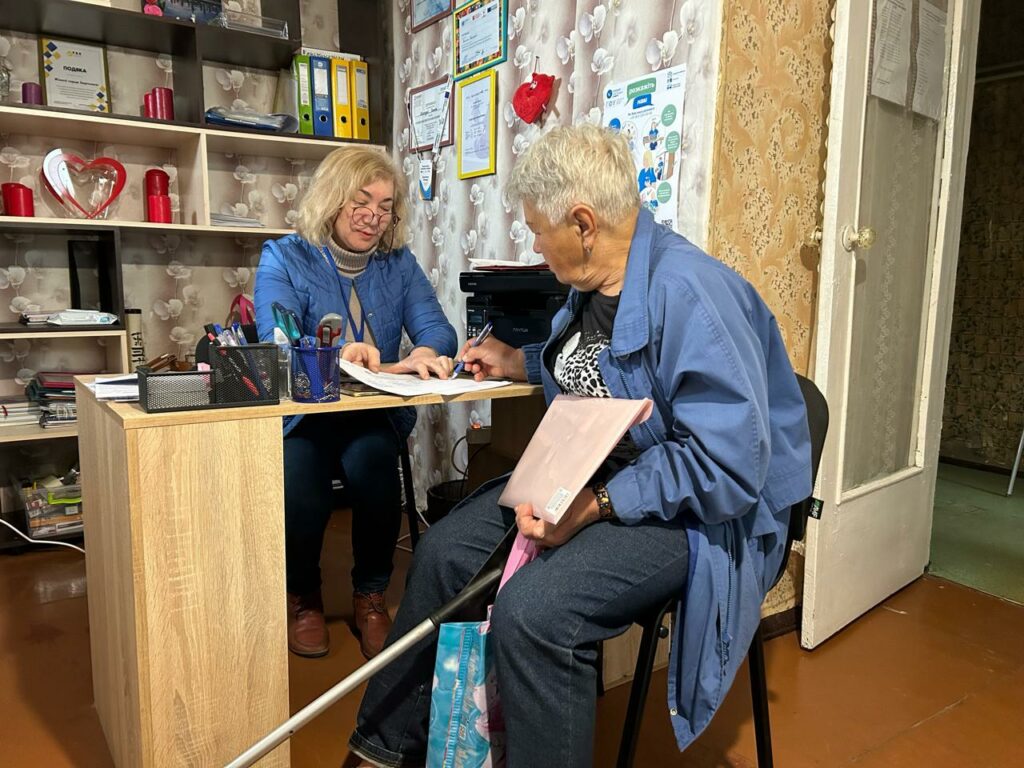

The needs of people who stayed and seek help are very different. In the Donetsk region, people are in dire need of material support: food, hygiene products and cash assistance. Many request help in transportation to the city of Dnipro, the nearest safe area, where they can resolve administrative issues and receive medical care in hospitals. The situation is slightly different in Zaporizhzhia and Kherson regions, where there is no urgent need of food for remaining residents. Operators report that authorities and humanitarian organisations focusing on food distributions are mostly able to satisfy these needs.
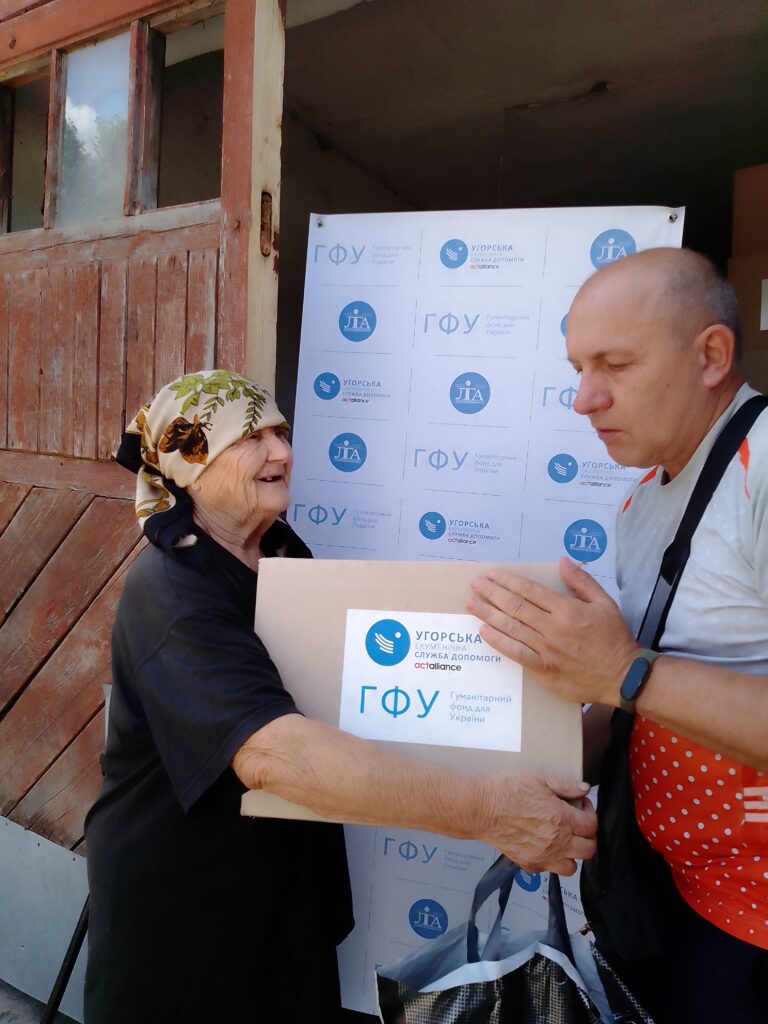

However, in all three oblasts, people report a shortage of medicines, medicines for people with disabilities, and the need for financial support to cover individual needs that are not directly provided by humanitarian organisations. General counselling with the goal of protecting residents living in the vicinity of the frontline continues to be in high demand, as these people often lack means to access information.
Legal assistance is a service frequently requested in all support points of Hungarian Interchurch Aid, with 315 people receiving help in legal matters until now. HIA’s operators and lawyers help residents with issues such as inheritance, property registration, re-registration of residence, reporting of damages to property or obtaining IDP status. Transportation and evacuation are also important to the people in need: often public transport ceased to exist in these settlements – but even if there was, many would not be able to pay for it. Which is very important, because many of their issues can only be resolved by government authorities in bigger cities farther away. Since the start of the project, HIA and partners evacuated and transported close to 1700 people in need to cities considered safer.
While many have left these regions ravaged by war, those who stayed usually have no other option. They either have nowhere to go, or their – or even their significant others’- health condition does not allow them to leave. A substantial part of them also does not want to leave their homes, where they have lived all their lives, where they have rejoiced and grieved, where their relatives are buried, where they raised their children. In these 20 settlements and their surroundings, Hungarian Interchurch Aid’s support points provide indispensable help. No matter how difficult their situation is, the support points’ staff makes sure that residents do not feel abandoned and hopeless in their lives – even with a terrible war forced upon them.
